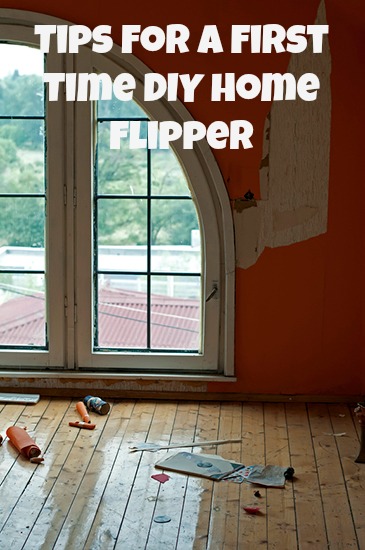
Real estate investing has always been a popular method for making your money work for you. Land development and holding, long-term investing, REIT’s and rental properties have attracted people far and wide as ways to invest money in order to create multiple streams of income that lead to wealth and liberty. But one of the most popular methods has always been house flipping.
The idea that you can take a below-value property, whether it be because of maintenance or repair issues, foreclosure, abandonment, or some other reason, invest a small amount of capital to repair and update the house, and sell it for a profit in a short amount of time is something that can appeal to a wide variety of people. But for someone who is just getting into the flipping industry, it can be a daunting and overwhelming prospect. Where do you start? What is the best place to invest your money? What can you do yourself and what should you farm out to a contractor? Below are just a few tips for DIY home flippers.
Emotions
When it comes to home flipping, one of the biggest and best things you can remember is to not get emotional and to not get attached. Don’t get emotional about the property, the money, or the look. Remember, this is not your house, this is a business opportunity and you have to appeal to the potential buyer, not yourself. Make sure not to get greedy or take on more than you can chew. In the beginning start small with something that is mostly a cosmetic fix. You’re profit won’t be as big but you will learn valuable lessons that will help you down the road. Above all, stay realistic to the market. Do your research before you even think about putting in an offer on a house. Sites like Zillow can do approximate home valuations and help you to make sure that the cost to flip isn’t going to put your house way above value for the neighborhood.
Knowledge
Know your strengths and limitations. If you aren’t a licensed contractor, don’t expect to be able to go in and make structural repairs yourself. Make sure you have the time and resources to accomplish what you want to do. If most of what needs to be done is cosmetic, ensure you have enough time allotted to make the house presentable. Cosmetic repairs can be done by nearly anyone, but they often take a great deal of time and detail to be done right.
Don’t be afraid to hire contractors to help you with some of the more difficult repairs. It might cut into your profits a little bit, but can save you a ton of hassle and money later on. Especially with highly visible items like roofs and windows. Companies like Champion Home Exteriors can help you with everything from small leaks and re-shingling to complete replacements and upgrades. This can help you not only make sure that the home is up to code, but the included warranties and additional curb appeal can make selling the house that much easier.
Staging
When flipping a house, make sure you put your money where it is going to do the most to help you sell the house. Since it is going to be vacant when it goes on the market, staging the home can be even more important. Curb appeal is going to be your biggest advantage here. According to eHow, you should make sure the front of the house is meticulously landscaped and clean and appropriate for the neighborhood. Do what you can on the inside to not distract from the potential of the house. Your job here is to give the buyer the ability to imagine themselves living in the house. If possible, window hangings or bathroom fixtures can make a big impact. And don’t be afraid to spend a little more on items like kitchen appliances.
Above all, expect the unexpected. Every home is different and there are often things that pop up that you never knew existed and weren’t prepared for. Every house you flip is an opportunity to learn and grow, making the next one that much easier. Just stay focused and do your best to not get in over your head, and soon you’ll be making money hand over fist.
